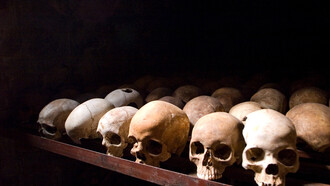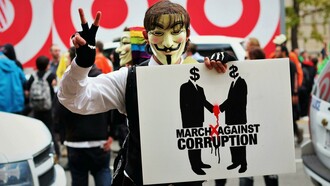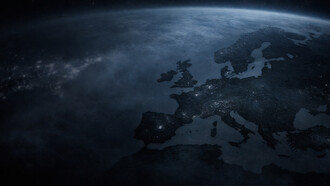The theocratic revolution of 1978 led by Ayatollah Ruhollah Khomeini which ended the monarchy and dictatorship of the Shah, Reza Pahlavi, had several consequences on the political map of the Middle East. We must not forget that the United Kingdom and the United States were great allies of Iran and of Pahlavi. So much so that today it is known that in 1953, with the consent of the Shah these two countries overthrew the then Prime Minister Mohammad Mosaddek, who had been democratically elected in 1951 and had the bad idea of nationalizing oil with the majority support of the Iranian Parliament. It was the English, owners of the deposits, who prepared the coup supported by the recently created CIA, in one of its first operations abroad of heavy caliber. It was then that the “King of kings,” Reza Pahlavi, seized absolute power, generating in just over two decades everything necessary for his fall: impoverishment of the majority of the population, enrichment of the elite, repression without limits at the hands of the feared Savak, and a monarchic lifestyle full of ostentations and waste, typical of the Thousand and One Nights. Just what Khomeini needed to return in glory and majesty from his exile in Paris and proclaim the Islamic Republic. Until a year before the fall of Shah, relations between Washington and Tehran were fluid, as evidenced by the visit of former President Jimmy Carter in 1977, who stated in his speech at the official dinner: "Our friendship is irreplaceable .... There is no other leader for whom I feel greater gratitude and personal friendship.” However, Pahlavi ended his days in exile in Egypt due to successive refusals to receive him from at least 6 countries, including the United States.
The consequences of the regime change in Iran produced a rearrangement of the political balance of the region. The United States lost an ally and won an enemy; President Carter failed in a military hostage rescue operation losing his re-election, it came to a cruel war between Iran and Iraq, a declared enemy appeared to Israel, the Palestinians continued in no man's land, the differences between Shiites and Sunnis deepened, Saudi Arabia joined the enemies of Iran, while China and the then Soviet Union kept their distance with the new Tehran regime because it was not a proletarian revolution but a religious one, highly risky for their interests due to the existence of Muslim minorities in both countries.
Four sub-regional powers today dispute the hegemony of the area: Saudi Arabia, Israel, Turkey and Iran. All have, of course, strengths and weaknesses. The Saudis are rich in oil, with a medieval dictatorship that governs them, but they count on the unconditional support of the US and in general on powers turning a blind eye on them. The Israelis feature development, powerful armed forces, intelligence services, nuclear weapons and have, like the Saudis, the full support of Washington. The downside is their isolation within the multilateral system, international condemnations for their land ownership policies and the unresolved situation in Palestine. Turkey was a great empire controlling an important part of the region, has a privileged strategic location and is a key partner of NATO. Today the situation has changed with the nationalist government of President Erdogan, who has taken a distance from the United States for his support of the Kurds in Syria, the attempted coup and has also moved away from Europe, which has slammed the door regarding their claims to enter the European Union. Iran has consolidated a 40 year-old revolution, resisted a war with Iraq and the US blockade. Rich in oil, it controls the strategic Strait of Hormuz, where a fifth of the world's black gold transits and which is its best defense against any external threat. Its weakness is the economic decline, the mono dependence on oil, the high rate of perception of corruption, the religious fundamentalism of the ruling elite and the fatigue of people who want stability, consumption, peace and the end of the blockade. With 82 million inhabitants and 1,745,150 million km2, it is 2.7 times larger than France in territory. According to the World Bank, its per capita income for 2017 corrected by the PPP was $ 19,098. The IMF figures indicate that the growth rate of its economy for the 2010-2017 period was only 1.33%. Of the public budget, 20.6% goes to health, 20.6% to education and 15.7% to defense.
The United States has played various cards in Iran. From declaring the former alley a public enemy after the hostage crisis which began in 1979, to selling them weapons during Ronald Reagan's presidency, in the middle of Iran's war with Iraq, despite the fact that Washington supported the latter and ignoring the express prohibition of the US congress. In the “Iran-gate” it was discovered that the CIA, with the consent of Israel, sold missiles to Tehran during the war and with that money financed “the Contra” or dirty war in Nicaragua, to prevent the Sandinistas from consolidating in the power. After the attack on the twin towers in New York, in 2001, Iran proposed and offered the US government to fight together against Al-Qaeda terrorism and the Taliban regime in Afghanistan, but that was rejected a year later, when President Bush Jr. declared that there was an “Axis of evil” composed of Iran, Iraq and North Korea. Today, when President Trump meets regularly with the North Korean dictator and maintains troops in Iraq, we can assume that two of the three countries have abandoned that category. Seen in another way, it is the national interest that overcomes the principles.
More complex is the US abandonment of the nuclear agreement signed with Iran in 2015, called the Joint Comprehensive Action Plan, or JCPOA, for its acronym in English, by the United States, Russia, China, United Kingdom, France and Germany after two years of talks. With this it was guaranteed that Iran would not be able to enrich uranium for the manufacture of nuclear bombs for 15 years, and all nuclear sites and plants were left open to inspectors for review, along with other reassuring measures especially important for Europe. The agreement was a successful diplomatic negotiation attributed to the will of former President Barak Obama, and for the diplomacy of the European Union for being one of the few achievements that it can show in foreign policy. The rupture of this agreement by President Trump was concluded by Saudi Arabia and Israel, which is not surprising, nor is the announcement that the United States will deploy troops in the Saudi kingdom after 16 years. That is, the murder of journalist Jamal Khashoggi that occurred at the Saudi Consulate in Istanbul has already been forgiven. As the press has reported extensively following the leaks of the British Ambassador's messages in Washington, President Trump acted primarily motivated because it being a complex and successful negotiation attributable to his predecessor. "It was an act of diplomatic vandalism driven by personalist motives," wrote today former British ambassador Kim Darroch.
We will have to see what position the new London government led by Boris Johnson, a close friend of President Trump, will take. This not only alerts the world to the possibility that, once the agreement is broken, Iran is free to enrich uranium and in a relatively short time can develop a nuclear bomb. If so, how long would the international community take to recognize its status? Recall that Israel, Pakistan and India did not ask anyone if they could develop nuclear weapons and did so despite threats of punishment against these last two countries that were subsequently sanctioned. Soon the sanctions disappeared and were recognized as atomic powers. Today nobody questions them. More serious is the fracture between the United States government and its European partners where the eyes are increasingly divergent on central issues of world politics. In the words of journalist Roberto Savio: "President Trump has no foreign policy, only an internal one."
Iran also does not make it easy in the international field. It denies the right to Israel to exist as a State, maintains an open conflict with Saudi Arabia that takes place in Yemen, supports Hezbollah militias in Lebanon that have broad popular support and is accused of terrorist actions such as the attack on the headquarters of the AMIA, in Buenos Aires, in 1994. Nothing indicates that tensions between Washington and Tehran will diminish. Only the next American elections can stop the warmongering escalation. An election could not be won by President Trump with corpses of US soldiers arriving in plastic bags back to the homeland. Iran neither wants to neither is able to face a war with the main power of the planet. As much as they can count on moderate Chinese and Russian support in the multilateral or especially military field. The wear and tear of its economy and fatigue of its people could be devastating. Maybe other powers in the region do want a military conflict.
When traveling through Iran, to cities like Isfahan, Yadz, Shiraz or the mythical Persepolis, once you enter in confidence when chatting with young and old, you feel the exhaustion of the religious revolution. People want to consume, they don't want to hear about war, of which they already had 8 years with Iraq, with thousands and thousands of dead. Once I was able to attend a protest on a Thursday night under the bridges in Isfahan where they gather to sing and shout slogan against the government. There were not many, but young people - always the engine of changes in any society, tired of controls, tired of prohibitions, with a desire to drink freely, without guilt. In Iran, shopping centers and outlets, although it seems difficult to believe, do not differ greatly from those that can be found in any Western country. Restaurants show off flags from many countries including the United States. People can order anything by phone from beers to whiskey - drinks are delivered to the houses. Of course, this is illegal, but somehow tolerated and just a matter of paying. It is true that the guardians of the revolution can come to a house to control, but people pointed out that when this occurs, with a little money it is also fixed.
Revolutions burn out if there is no obvious economic progress for people. Democracy can wait, this seems to be the norm, but not economic welfare. Iranian society, the Persians, are an ancient people with a refined, rich, diverse culture that has already had enough conflicts and tragedies. They aspire to material progress without reneging on their Muslim tradition, mostly Shiite; they want more freedom to move around the world, to decide if they want to consume alcohol, women to lift the veil, not hide their sexual preferences, and so many other spaces that are currently denied. They want to travel the world, visit the diaspora that is distributed among the United States, Canada, Australia and countries of Western Europe mainly. In other words, they want to be like any citizen of a democratic society.















